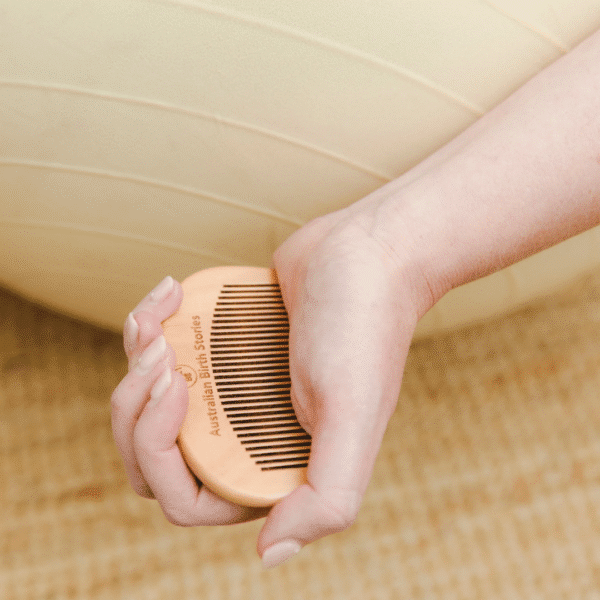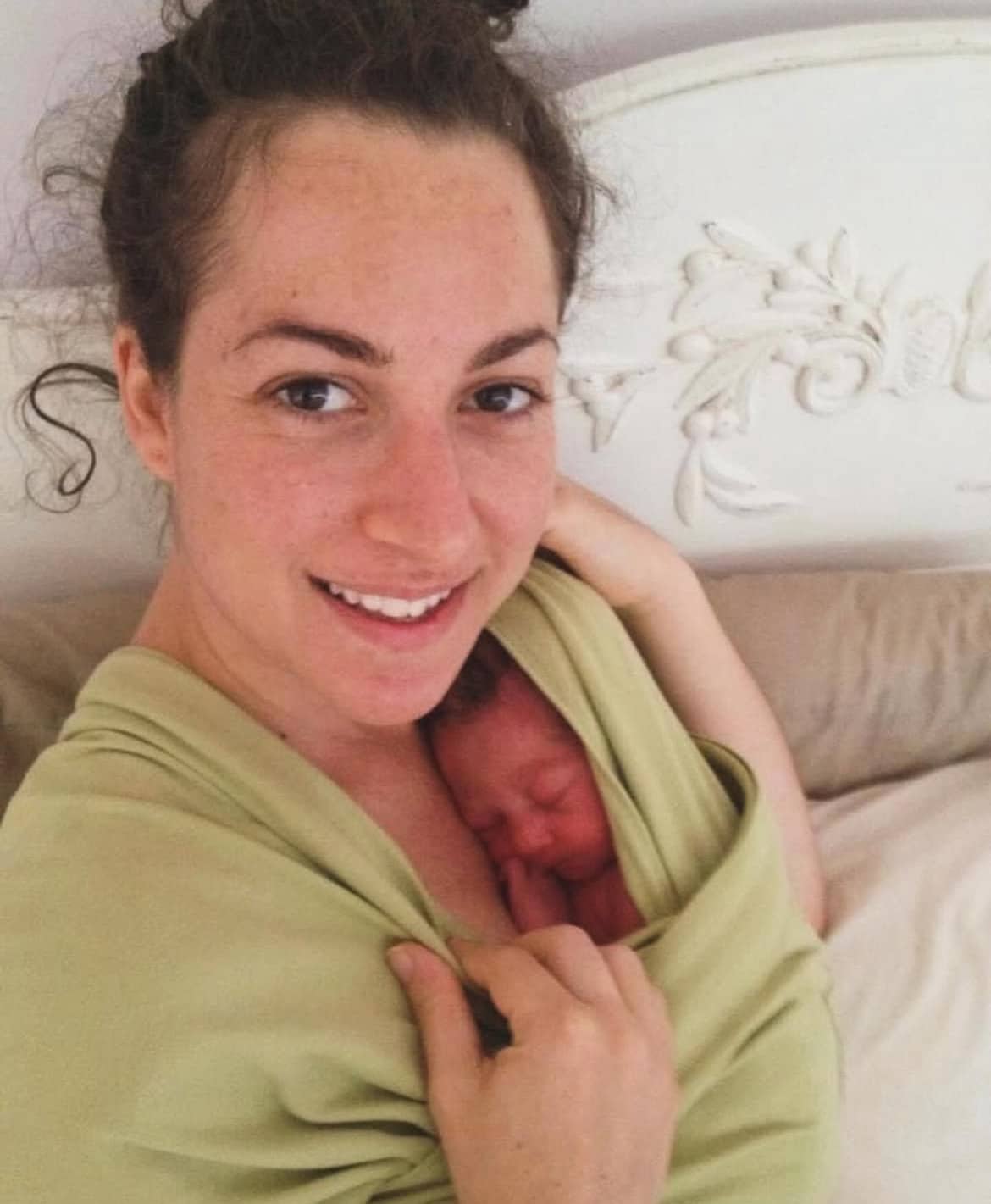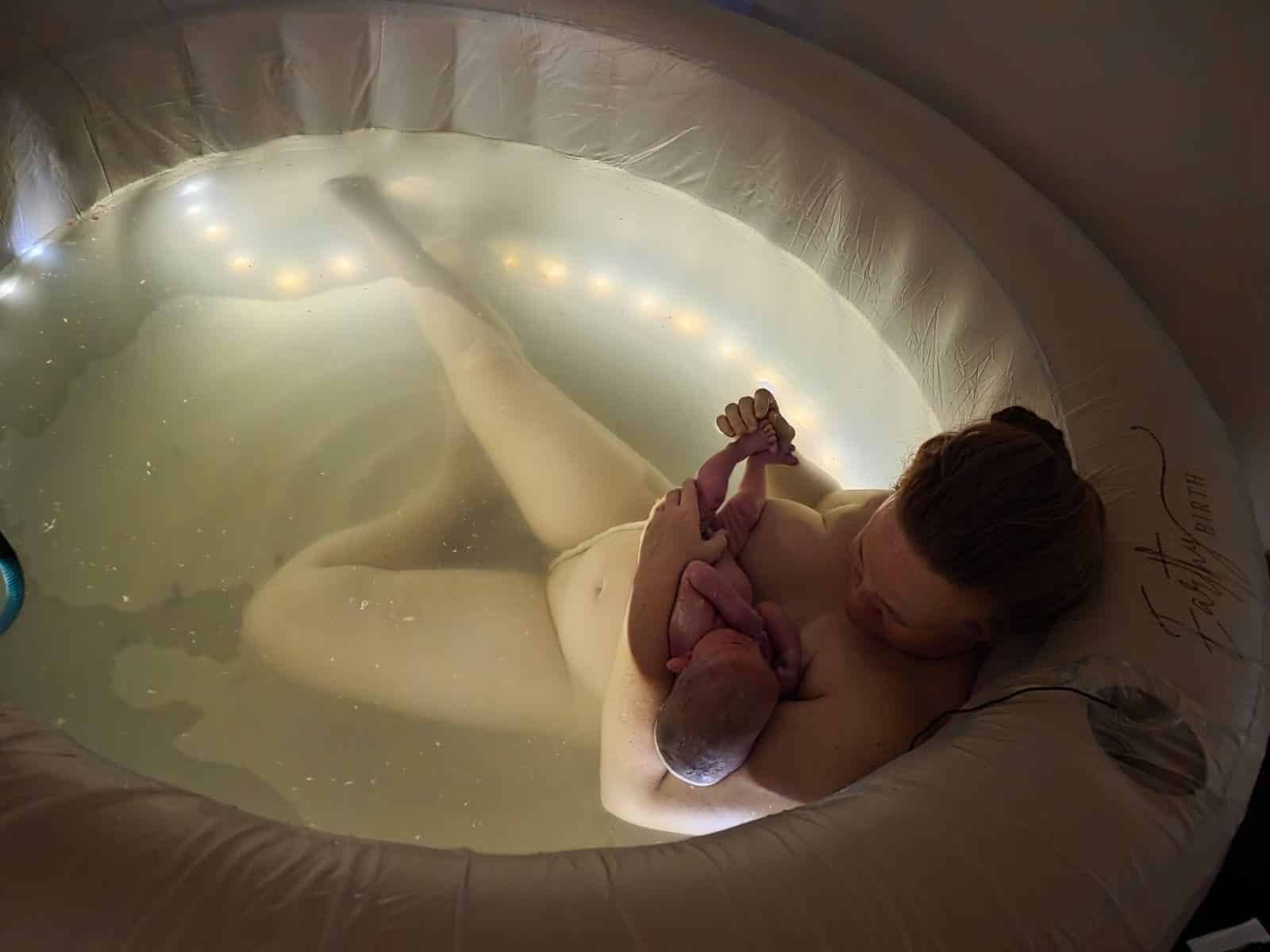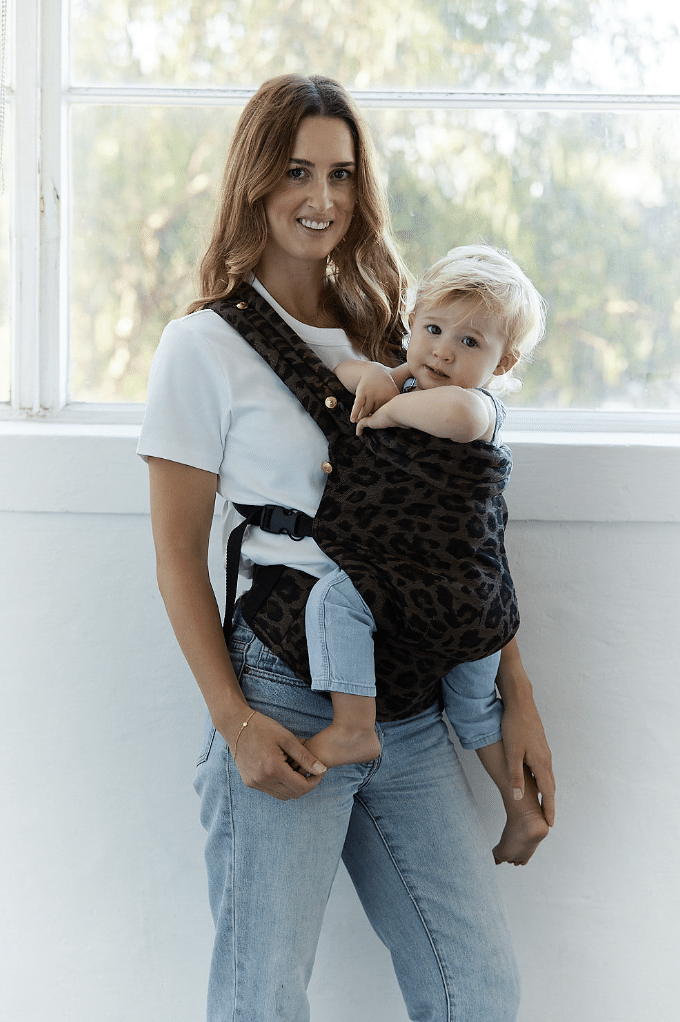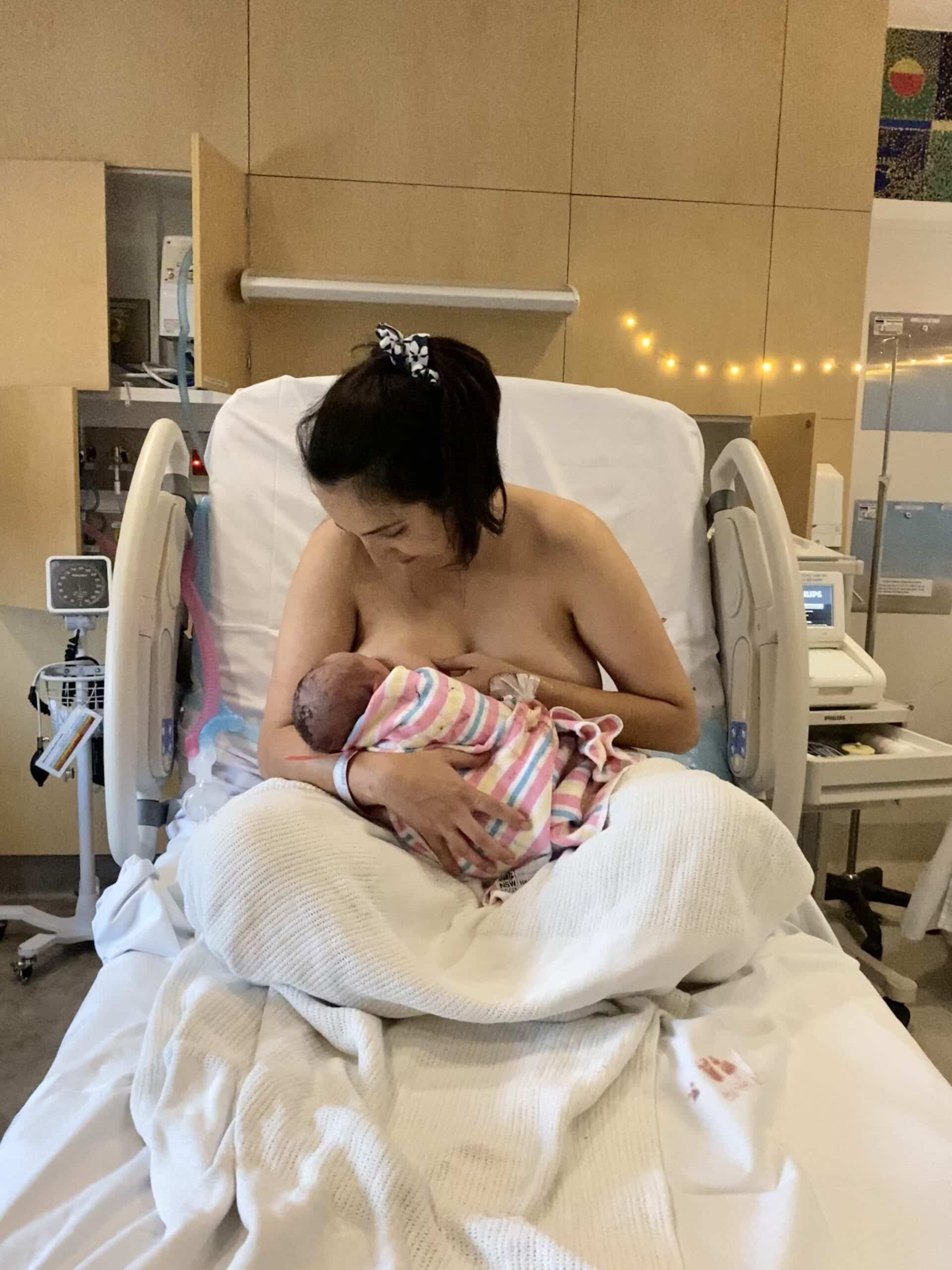Podcasts Ash – induction, vaginal birth, homebirth, waterbirth, microcephaly
EPISODE 473
Ash – induction, vaginal birth, homebirth, waterbirth, microcephaly
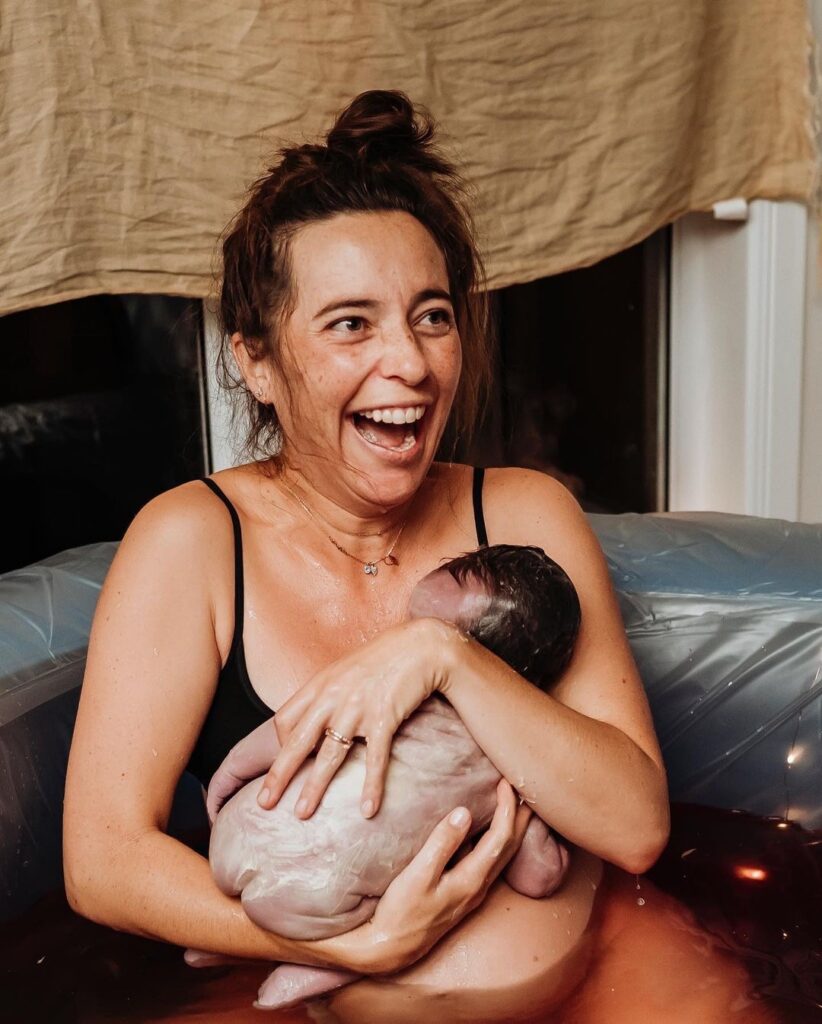
“I didn’t plan my first pregnancy but we weren’t using protection so it wasn’t too much of a shock. I was 22 weeks pregnant at my wedding which I wouldn’t recommend. As soon as I found out I booked an appointment with my GP and I started prenatal yoga early on and my teacher referred me to a private midwife. It kicked started my journey to a holistic pregnancy and birth.
“There’s an amazing clinic here called Coastlife Midwifery; they’re a bridge between homebirth and hospital as they have hospital rights. I didn’t book in till 18 weeks so I was really lucky to get in. The Sunshine Coast University Hospital is beautiful; there’s baths in each room so I felt really lucky to be birthing there and have the support of a private midwife. We went to a hypnobirth course and I started listening to your podcast at around episode 40 so I’ve been listening each week for six years now.
“My biggest issue was very low iron which in the scheme of things wasn’t a big deal. I was excited about birthing but I felt daunted as well because my belly was so big. I also have a history of depression and anxiety so I did experience a dip at the end which I also now is related to low iron. My waters broke in dramatic fashion and then nothing happened. My midwife visited the next morning to check on me and that night there was still no progress. It was so disappointing. I felt like I was on the clock, even though I had a private midwife in my corner. We went to the hospital that night and monitored me and everything was fine and again, I slept that night but nothing happened.
“I had a massive cry because I knew then that I needed syntocinon to kickstart labour and I also needed antibiotics because my waters had been broken for so long. The day got more and more intense; syntocinon contractions are wild now that I can compare them to spontaneous contractions. I was on continuous monitoring and eventually the fetal scalp monitor was attached which meant I could still move around easily. At around 3pm I was really struggling and while in the bath I had the urge to push but I was only 4cm. He was posterior so I now know that it may have been him turning but I didn’t know that at the time and I really freaked out. I requested the epidural because I felt really broken. The anesthetist was amazing; quick and neat and I calmed down immediately. At 10pm I started to push and he was born 90 minutes later.
“It was amazing to have my private midwife who really protected my space throughout the intensity and when I’d calmed down. I was so exhausted, as was my husband; we were so empty. I didn’t feel any joy, I just wanted to go to bed. I had a tricky tear so Chris held Harry while I was being sutured. I stayed in hospital for two more nights because I felt like a shell of myself.
“I should have been more on alert for my mental health but I slipped very fast. I should have had my psychologist lined up but I didn’t; I was just in survival mode. It was a dark space, I was very lonely, my husband was travelling for work and I didn’t have much of a community. I should have got help earlier on; I didn’t feel like there was any joy in the first few months. By six months I connected with my psychologist but yes, I should have done it much sooner.
“I always liked the idea of a big family and despite my experience, I didn’t doubt birth or the process. When Harry was 18 months old I had a primal urge to have another baby. We conceived easily again with Oliver but it was just at the start of covid and we work in events so our work stopped immediately and we had the financial pressure of that.
“I went to the same clinic but chose a different midwife and planned a homebirth. I didn’t do hypnobirthing but I did read Birth With Confidence by Rhea Dempsey and that encouraged me to lean into the discomfort. Both Chris and I had psychological care to process and heal from Harry’s birth. I set up postpartum appointments for myself and I got an iron infusion. We also moved house at 35 weeks which was stressful but it was really nice to be in our space ready for Oliver’s arrival.
“My waters broke in the morning and by lunchtime I was in bed, doing meditation and really relaxed and labour started to kick off, although it was slow at first. I had a big cry because I was scared of it being the same as Harry’s labour but then the contractions really ramped up and I couldn’t believe how different spontaneous contractions were; I got a break and could gather myself and prepare for the next one. The birth pool was inflated and ready to go and my labour was really going by 4pm.
“I started grunting and my midwife encouraged me to get in the pool and 18 minutes later he was born. There was a big sense of ease to it and I went into shock; I couldn’t believe how quick it was. He was a lot smaller than Harry and that was a bit of a red flag for what was to come in postpartum. My placenta was a bit ragged which was another red flag. He fed well and he was gaining weight in the first few weeks. His head wasn’t growing much which, at the start, I knew something was a bit off. I didn’t really recognise him at birth; he looked so different to Harry. At our six week appointment it hadn’t grown much since birth so we went to a GP and she was pretty brutal and she referred me immediately to a paediatrician and he was diagnosed with microcephaly which is a very small head and that’s usually a marker for genetic variations and often doesn’t have a very good outcome. It was absolutely terrifying. The doctor told us it was highly likely that he wouldn’t walk or talk.
“It was the darkest time in our lives as we came to grips with a very different life with a disabled child. Everything changed. That first year we had five or six appointments a week; we couldn’t find the reason why he wasn’t growing. There were all these suggestions from health professionals and I went through everything I’d done in pregnancy and navigated so much self blame. I went to my psychologist and she joined us on the ride for the next two years. A year and a half later we got a diagnosis; he was the seventh child in the world to be diagnosed with a variant of microcephaly, a tiny fault in the makeup on the first day of conception. He’s three now and he’s still very small, he’s very social and everyone loves him. He’s nonverbal at the moment but he’s also so present and once I stepped into the disability world my perspective really shifted; I’m just so grateful.
“I still had the worry that conceiving naturally would increase our chances of having another baby with that diagnosis but it was under one-percent. When I conceived Lachlan it was a big discussion as to whether we should have an amniocentesis but I also knew I wouldn’t have terminated the pregnancy. In the end we opted to roll with it. I was in a good mindset; I went forward believing things would be okay. At my 12 scan his nuchal fold was higher than average and I got a low papp-a which is an indicator of genetic abnormality but further tests came back as low risk.
“We planned a homebirth again with the same midwife but that was hard because the disabled community has a lot of children with birth injuries but I really had to focus on having faith in the process, whatever that may be. Again, my waters broke in the morning and it was very similar to Ollie’s birth. At noon I went into my birth zone and labour was very manageable and I was genuinely very excited. At about 4pm the midwife and photographer came so they were drinking tea, the fire was going…it was all really lovely. At 6pm labour intensified really consistently and I just got on with it; I never want anyone touching me or massaging me. I got in the birth pool at 7pm and was moving in different directions and at one point I put my hand in and felt his head and I could tell it was big. I’m the loudest birther and I really had to work to birth Lachlan. I picked him up and brought him to my chest; the culmination of the past four years were in that moment. He felt big, he was the same size as Harry and in that second I knew he was okay and the euphoria was incredible.
“The placenta was birthed really quickly and I felt so good. I finally had that feeling of immediate love and admiration as soon as Lachlan was in my arms. It was an incredibly healing experience and I didn’t realise how much I needed it.”
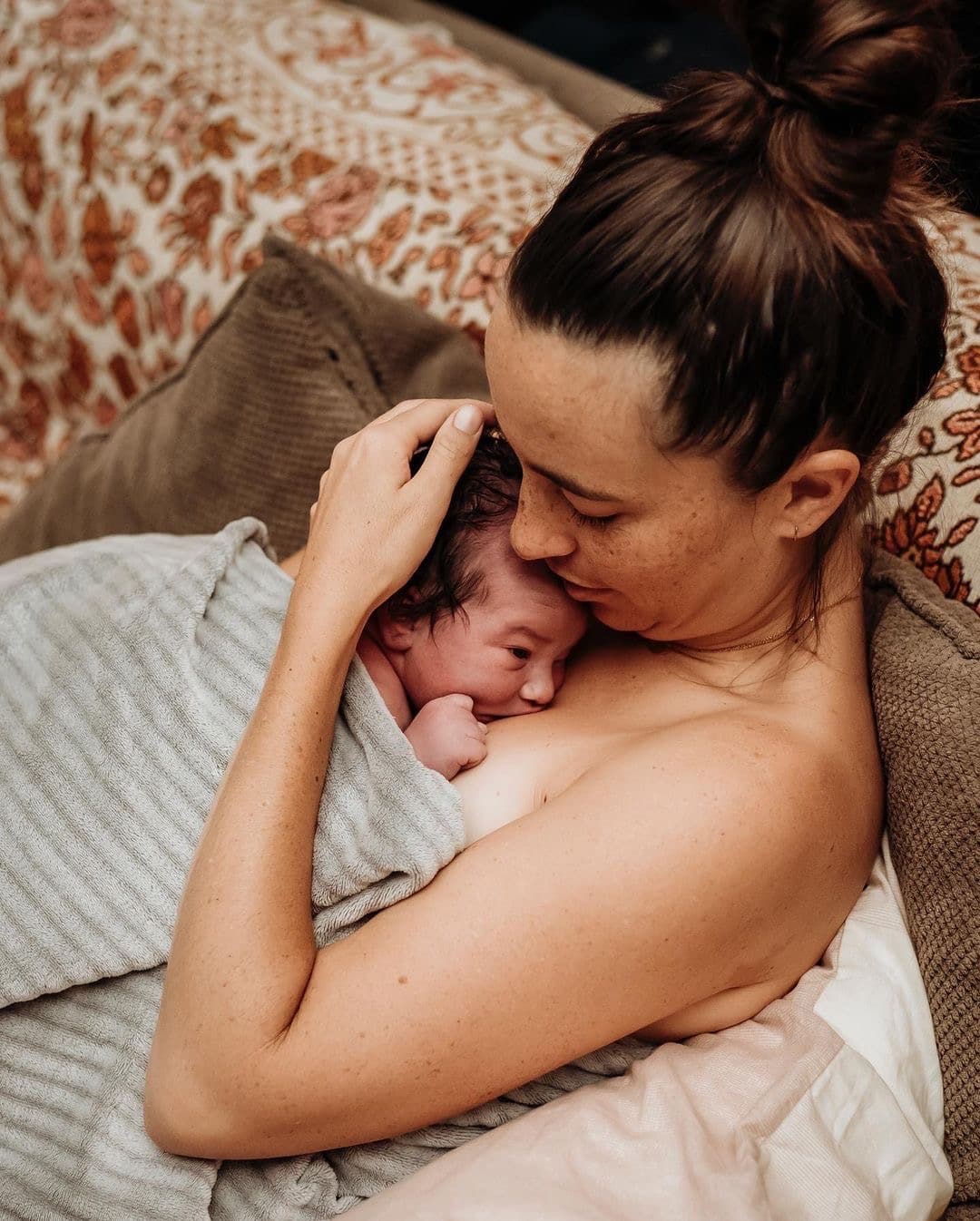
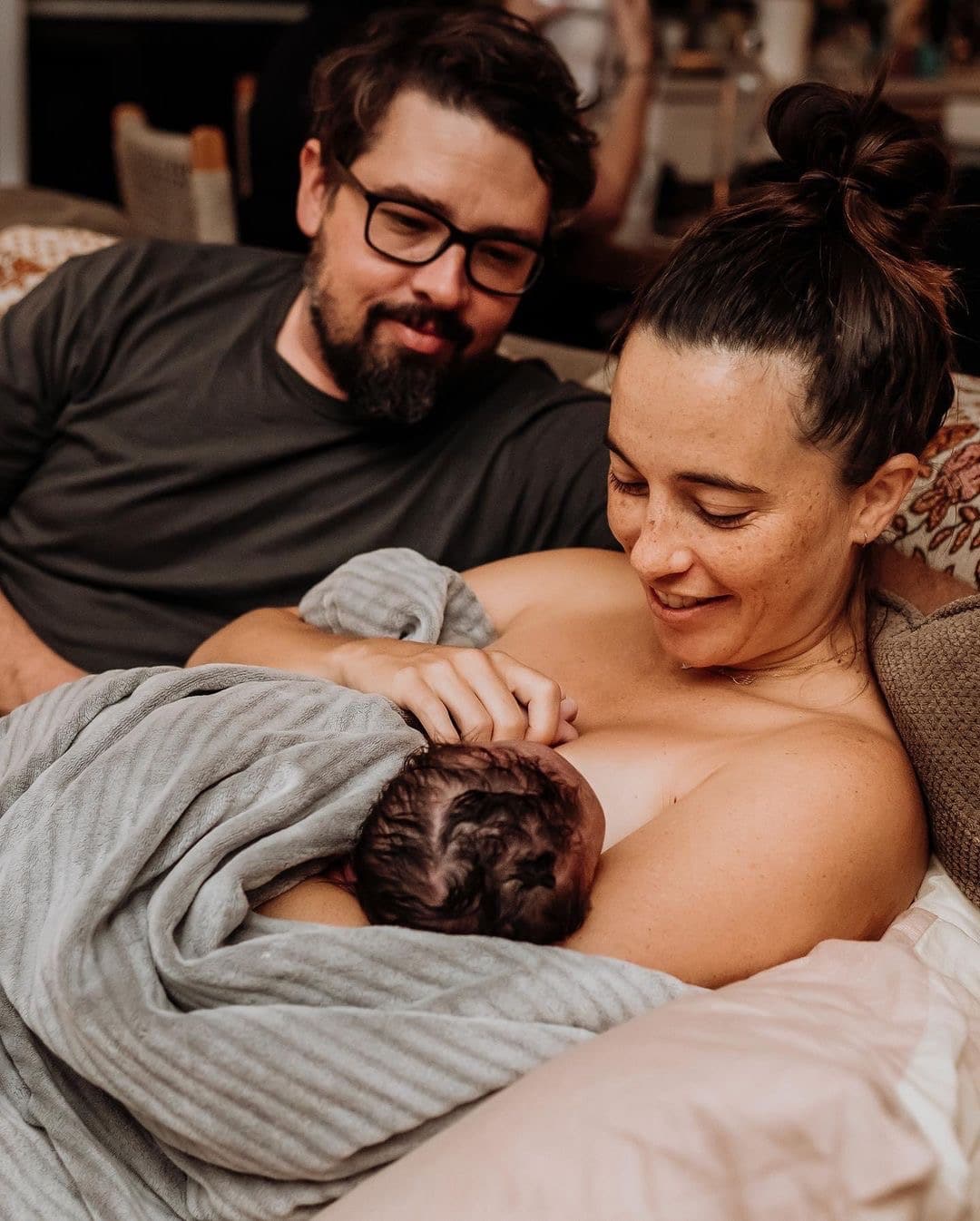
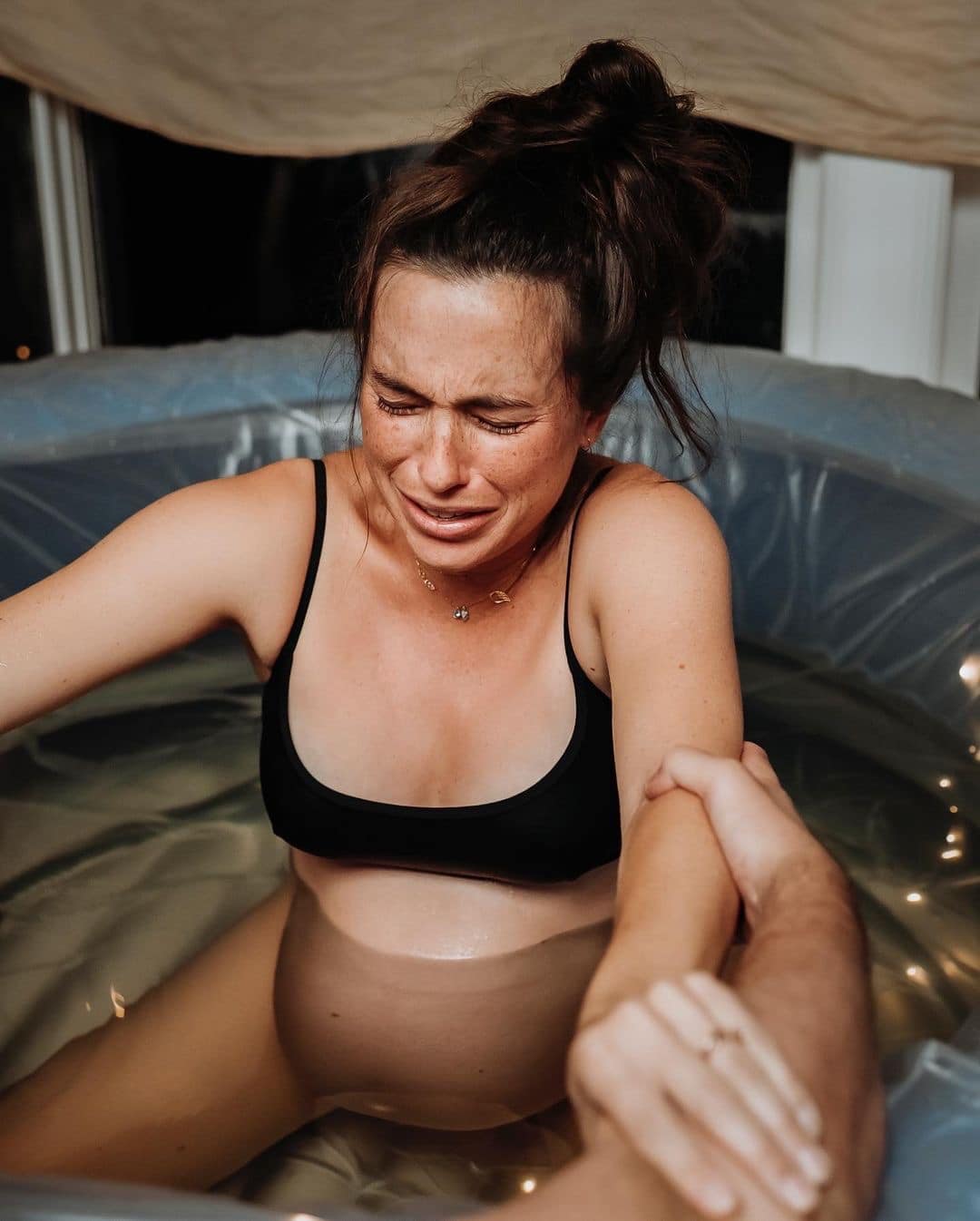
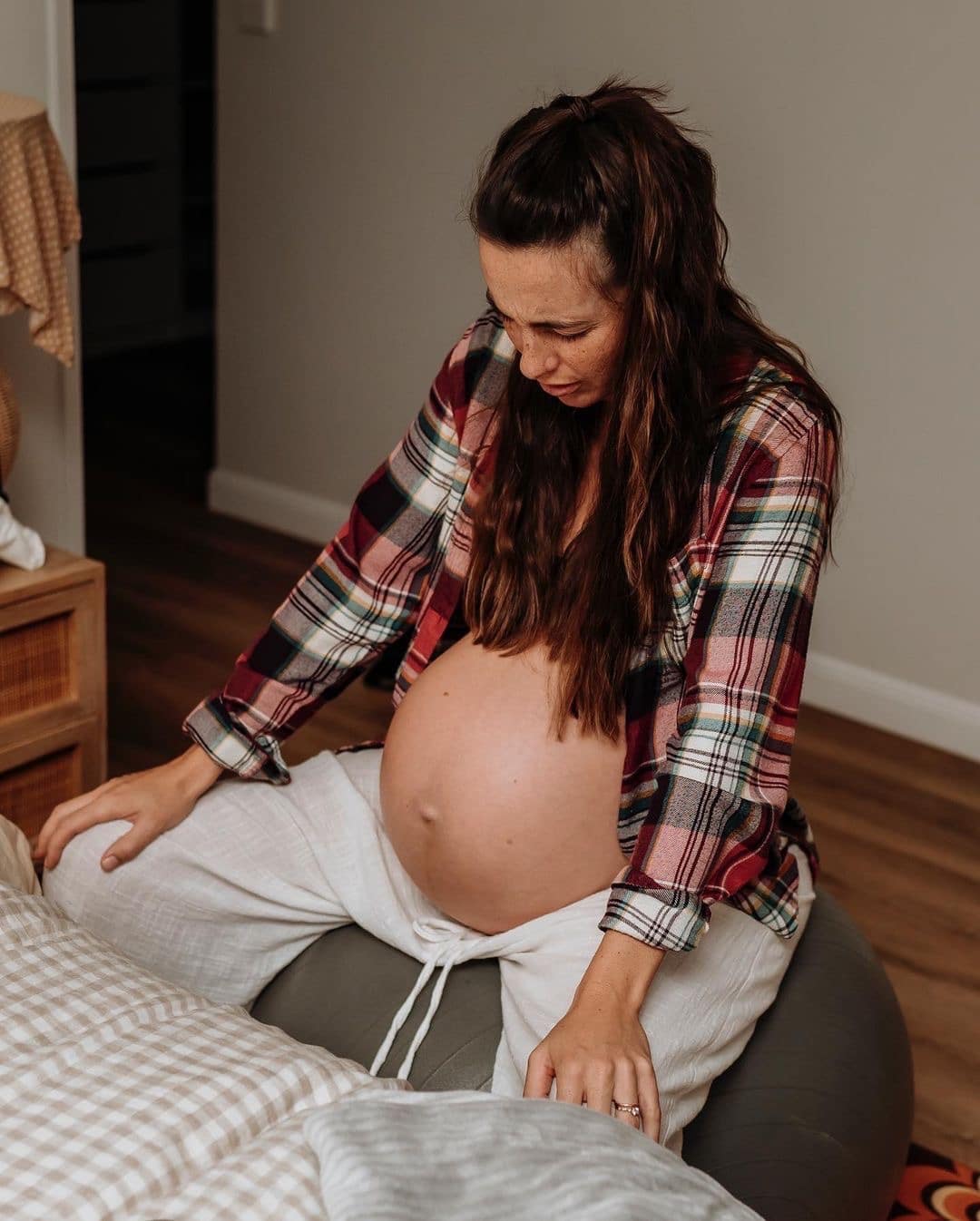

Topics Discussed
homebirth, Induction, microcephaly, Three babies, Vaginal birth, Waterbirth
Episode Sponsor
What makes The Birth Class so unique?
Instead of learning from one person with one perspective, we’ve gathered nine perinatal health specialists to take you through everything you need to know about labour and birth.
Evidence based information is key to thorough preparation. In The Birth Class you’ll learn from:
5 midwives and an obstetrician, a women’s health physiotherapist, yoga teacher and birth doula.
Listen in your own time and as many times as you like so you understand:
- the process of labour and the hormones involved
- the benefits and risks of interventions
- your pain-relief options
- what happens in an emergency caesarean
- what to expect in the hours after birth
- active preparation for a VBAC
Plus, you’ll be taught practical birth skills that will help you navigate the twists and turns of labour.
The Birth Class is accessible birth education that’s both conversational and wise. Best of all, it will start a conversation with you and your support person so you can both feel prepared and confident to make informed choices; the foundation of a positive birth experience.
Categories
Related Products
-
Birth Combs: Harness Your Body’s Natural Pain Relief
$24.95Crafted from smooth, natural wood, our birth combs activate specific pressure points in your hands that trigger your body’s innate pain-relieving responses.
Join the conversation
Sign up to get the latest updates, freebies, podcast releases straight into your inbox
@AustralianBirthStories
Follow along with us
@AustralianBirthStories
Follow along with us
@AustralianBirthStories
Follow along with us
@AustralianBirthStories
Follow along with us
@AustralianBirthStories
Follow along with us
@AustralianBirthStories
Follow along with us
@AustralianBirthStories
Follow along with us
@AustralianBirthStories
Follow along with us
@AustralianBirthStories
Follow along with us
@AustralianBirthStories
Follow along with us
@AustralianBirthStories
Follow along with us
@AustralianBirthStories
Follow along with us
